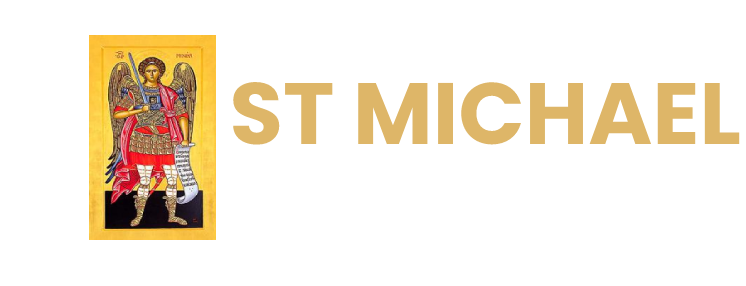Sermon – The Tenth Sunday of Luke 2020
Pastor’s Sermon
The Tenth Sunday of Luke
by V. Rev. Timothy Baclig
December 6, 2020
The setting of the miracle of the woman spoken of in today’s Gospel lesson is at a synagogue where the Lord was teaching. The love of God and His great mercy is the main point of the Gospel lesson. It is the good news of this season as we prepare to celebrate the Feast of His Birth.
The Lord repeatedly called the people to repentance from the practice of a religion that fails to practice and demonstrate mercy. Every Lenten season, our lessons point to the heart of what it means to be non-hypocritical. He rebukes those who claim to know the Law as being ignorant of the very thing in which they were expected be more knowledgeable and better instructed than anyone.
“You hypocrites,” He says, “Doesn’t each of you on the Sabbath untie his ox or donkey from the stall and lead it out to give it water? Then should not this woman, a daughter of Abraham, whom Satan has bound for eighteen long years, be set free on the Sabbath day from what bound her?”
The ruler of the synagogue condemned the Lord for healing on the Sabbath. For him religion consisted of the observance of laws that could not be set aside even for the sake of mercy. The ruler’s reaction to the healing of the woman who “had a spirit of infirmity for eighteen years” illustrates how radically misunderstood and misused the Law had become among those whom God had so favored and of whom he expected so much.
You may recall from one of the readings of the twelve Gospels (Matthew 23:13-39) on Great and Holy Thursday the words of our Lord: “Woe to you teachers of the Law, Sadducees, Pharisees hypocrites”… You brood of vipers…” …[loving] the praise of men more than the praise from God…”
In today’s lesson the Lord heals the woman by His word—“Woman, you are set free from your infirmity”—and then by His touch: “He put His hands on her; and immediately she was straightened up and praised God” (vs.12-13). The miracle is remarkable for two reasons: First, the woman was not seeking to be healed and no one spoke on her behalf. Second, the Lord demonstrates that He is the incarnate God by the simple declaration that she was healed.
The rejection of Christ as the incarnate God by the Jews is matched by the heretics who claim that the eternal God could not possibly humble Himself and condescend to take on our nature. In the case of the heretics, they can only understand Christ to be a created being. To this point, St. Gregory of Nazianzus says, “Do you conceive of Him as less… because he humbles Himself for the sake of the [woman who] is bent down to the ground, that He may exalt with Himself that which is bent double under the weight of sin?”
Our Lord was never threatened by anyone or any circumstance. Nor was he controlled by any person or any situation. He did not need to prove who He was; nor did He need to demonstrate anything to justify Lordship. It was not His aim or purpose in His coming. If we miss this point, that we will never know the depth of meaning which is revealed in the upcoming Feast of His incarnation (called: “The Great Dispensation”) In the ninth ode of the Christmas Canon we hear: “I behold a mystery, great and most wonderful; heaven is the cave, the cherubic throne, the Virgin; the manger, the place where Christ lay: the uncontainable God who we magnify in song.” For some of us: this way of being humble is something we learn by being crushed, humiliated or by being broken. This was for our Lord something that He not only understood, but something He chose and demonstrated before His crucifixion by His every word and deed.
Every crisis in our life can do one of two things: It can lead us closer to God by way of the Cross, or it can alienate us from God and cause us to reject His call to holiness. The lesson therefore is clear: There are the more weighty matters of the Law that we cannot ignore. The practice of true religion is not neglecting what is obvious: namely, God’s love, mercy and compassion which fulfill the Law.
Many of us, as creatures of habit, dislike disruptions to our routine or what we are familiar with or accustomed to. When you and I are most comfortable with things being done a certain way, change can be very difficult. We loose our orientation, and being disoriented can be devastating to our pride. Meaning can be lost as we define what is meant in terms of what we do with no thought to why we are doing it. Today’s lesson forces us to recognize that we can be misguided and loose sight of what really matters—as far as God is concerned.
As we begin our countdown to Christmas, may we not loose sight of the reason for the season: God’s coming in the person of our Lord Jesus Christ was not an apparition. We are preparing to celebrate the full revelation of our Lord Jesus Christ who became Man. He took on human flesh and assumed our entire nature, except for sin; but for the purpose bearing the sin of the world. He came to renew and restore all that was lost with Adam. And as the New Adam He fulfills the Law and is our righteousness.



